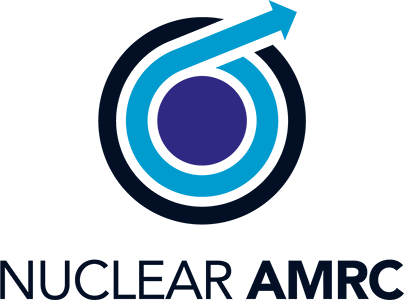When he’s not working as project manager and principal engineer at the Nuclear AMRC, David Anson volunteers with the Whiteknights Yorkshire Blood Bikes charity to safely carry medical material to where it’s urgently needed. He explains what he does, and the parallels with nuclear manufacturing.
I’ve been volunteering with Whiteknights Blood Bikes since Covid started. The charity exists to provide out-of-hours service to the NHS, with three divisions covering the whole of Yorkshire – I work in the southern division, covering the Sheffield-Rotherham area.
Everybody on the bikes has to be an advanced motorcyclist, which I have been for five or six years now. When Covid came along and it was a case of seeing what I could do to help, it seemed a natural progression for me to be involved in this.
We provide an emergency service to the NHS around the area. For example, I was on call-out from seven o’clock last night to seven o’clock this morning. I had five call-outs: three before I went to bed, and two I was woken up to do.
The first one was taking some records from the Hallamshire Hospital to Northern General, then there was two lots of picking up emergency medication from radiology and taking them out to people who had emergency appointments in the morning. Then the two runs at night were both taking samples from the Children’s Hospital to the Northern General labs.
Because the charity is part of a national system, we also do relay runs for emergencies and also for research. The longest relay I’ve been involved in was something that had to go from the very south of England up to Newcastle – there were five legs involved, and I was the fourth. Normally it would have been taken by private aeroplane, but the weather forecast wasn’t good. It was deemed to be too bad for an aeroplane, and it still wasn’t exactly brilliant for a motorbike. Nonetheless, it got through in the end. I haven’t a clue what it was, which is the case for most of the things that we carry.
The research stuff that I do know about is called FMT, which helps people who have serious issues with antibiotics not being able to cure them. You can look it up – we carry it, and it’s frozen in little envelopes.
There is a parallel between doing this and working in the nuclear sector, and it’s all down to health and safety. We want zero defects, we want zero accidents.
We are having to work in some unpleasant weather conditions and challenging situations. The bike has the great advantage of being able to cut through traffic, but you have to do that safely. The bike is liveried up so we do get noticed, but it doesn’t stop people pulling out in front of us. We’re not allowed to speed, we’re not allowed to use blue lights.
It’s also about what’s in the head, and being a qualified advanced rider. It’s about defensive riding, it’s about stopping accidents happening in the first place even when it hasn’t been your fault.
There are people out there who don’t necessarily see what’s happening, so it’s about having that safety-first attitude all the time.
- Find out more about Whiteknights Blood Bikes, and the Nationwide Association of Blood Bikes.




